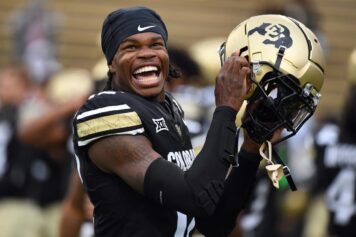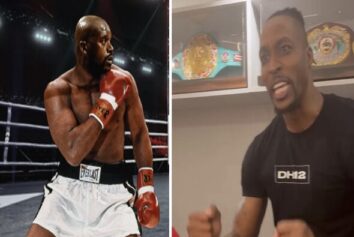During its 60-plus year tenure in Washington DC, Ben’s Chili Bowl has endured some of the darkest days our world has seen.
As a dining establishment that’s fed everyone from leaders of the civil rights movement to entertainment stars to busloads of hungry tourists, Ben’s is recognized as a prominent landmark in the Nation’s Capital, loved and patronized by many far and near.
As the COVID-19 pandemic ravaged the nation, it also put places like this historic landmark on the brink of closure.
DC's Ben Chilis Bowl might have did something with this! This mural 🔥 pic.twitter.com/e2yKIFV23t
— DMV 🔌 (@DmvMusicPlug) June 23, 2017
Ben’s Chili Bowl has weathered many recessions. It also survived civic unrest and held out as many of the blocks around it began gentrifying. But as the coronavirus pandemic shut down public life, it really made things look bleak on 14th and U NW Washington DC.
The pandemic even caused all other locations except the original to close. With company revenue dropping and most of the staff home, Ben’s joined thousands of restaurants in the region in the fight to survive on curbside pickup and delivery.
But God came and blessed this historic piece of the District Of Columbia. A federal loan was the bailout needed to keep things going and it came right on time. No way that area could lose such history.
Known as Black Broadway, when Ben’s opened in 1958, the then affluent Black community was frequented by names like Duke Ellington, Stokely Carmichael and even MLK.
In fact, MLK had a satellite center located down the street, and when in town he’d always stop by for that infamous chili half-smoke.
There he’d tell the owners about his “I Have A Dream” and the “The We Shall Overcome” March On Washington. The restaurant was a part of The March itself in 1963. So after Barack Obama became the first Black President in history, that just resonated so much with what Dr. King used to talk about when he stopped by.
Obama even made his first pitstop here leading up to the inauguration in 2009.
After the assassination of Dr. King in 1968, Ben’s was one of the only places permitted to stay open, as they fed protesters and first responders late into the night.
Carmichael told the owners they needed a place where city officials, activists, and the first responders could come in, feel safe, and eat. A sign that no matter what’s going on in the world, Ben’s is always in tune with the pulse of the community.
Paint this man on the side of Bens Chili Bowl https://t.co/1XqLacGdka
— K.Y.R.I (@VividDope) June 8, 2018
Destruction from the protests caused residents to flee from the area. That, coupled with many detrimental setbacks over the decades, from the crack cocaine era to just drug trafficking into the Black community in the 70’s also forced people out of the city.
Also a disruptive metro construction throughout the 80’s and large-scale gentrification through the ’90s, all played a huge role over time and effectively erased Black Broadway off the proverbial map.
Through it all, Ben’s Chili Bowl still stands tall in a community that needs it and it needs them.



